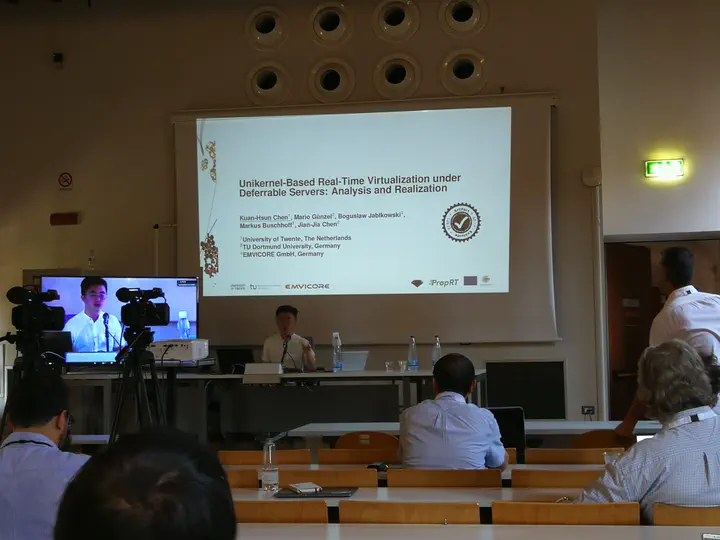 Image credit: Unsplash
Image credit: UnsplashAbstract
For cyber-physical systems, real-time virtualization optimizes the hardware utilization by consolidating multiple systems into the same platform, while satisfying the timing constraints of their real-time tasks. This paper considers virtualization based on unikernels, i.e., single address space kernels usually constructed by using library operating systems. We consider deferrable servers in the virtualization platform to schedule the unikernel-based guest operating systems and analyze the worst-case response time of a sporadic real-time task under such a virtualization architecture.
Date
Jul 5, 2022 8:30 AM — Jul 8, 2022 5:00 PM
Location
Modena, Italy
This work is resulted from the international cooperation with TU Dortmund and EMVICORE GmbH. Further event details can be found in the offical website.